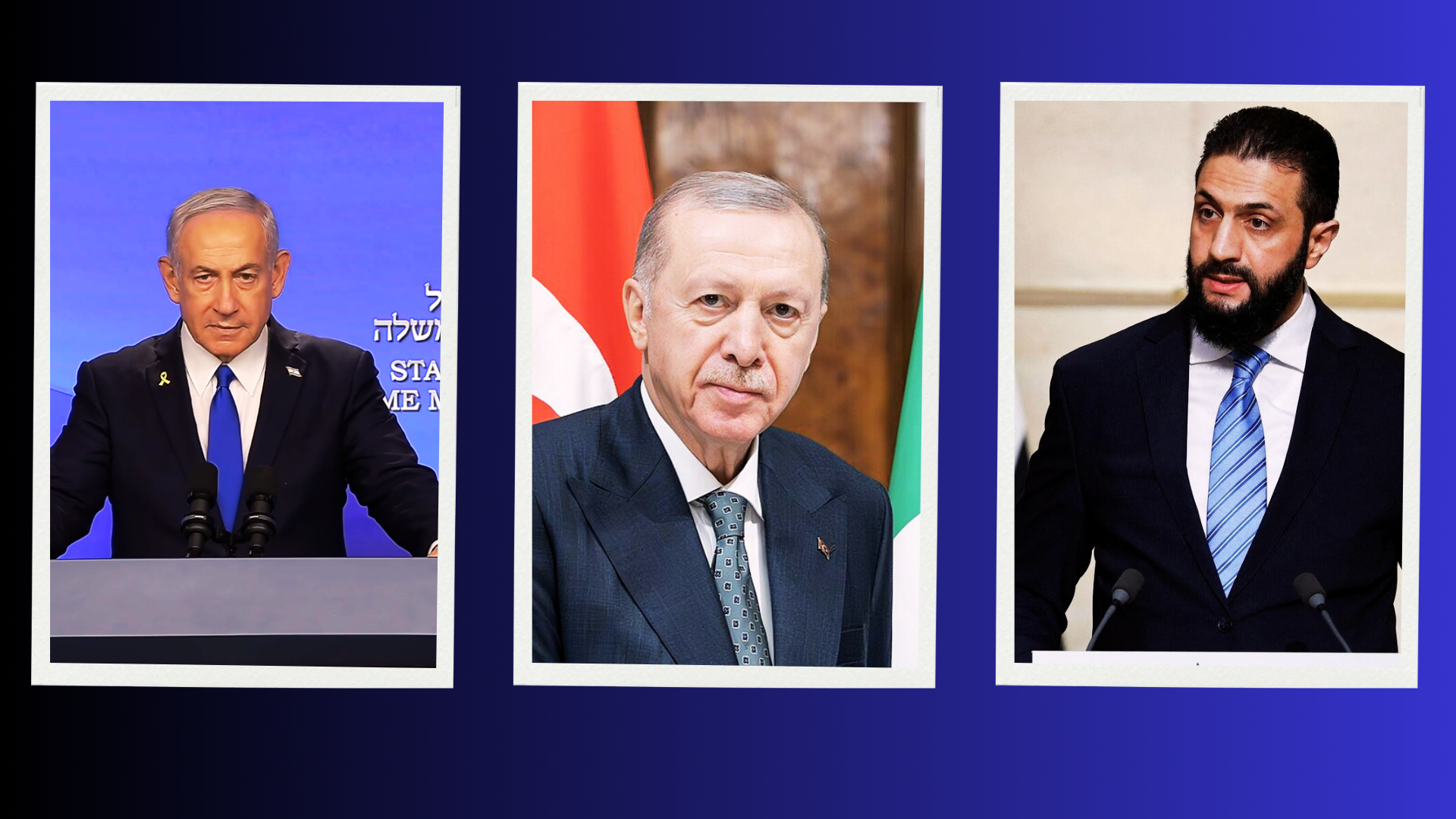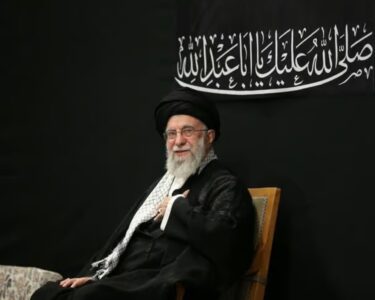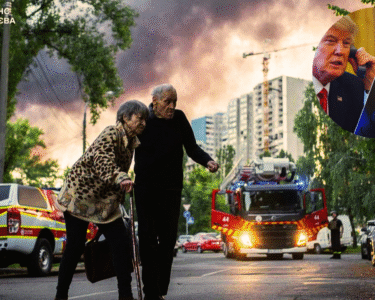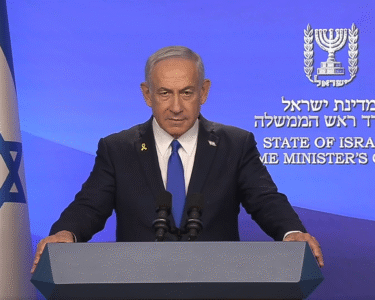Confrontations between Syria’s Druze community and the new regime of Ahmad al-Sharaa, also known as al-Jolani, continued to destabilize the region on July 18, prompting diplomatic and military responses from Israel and Turkey. The ongoing crisis has led to high-level security discussions between Israeli, American, and Turkish intelligence officials following reports of civilian casualties in southern Syria.
Turkish President Erdogan’s senior advisor and Turkish intelligence chief Ibrahim Kalin engaged in discussions with counterparts from the United States, Syria, and Israel regarding Israeli military operations in Syrian territory. These talks occurred against the backdrop of reported attacks on Druze civilians in southern Syria, with Turkey’s Defense Ministry announcing readiness to support Syria’s defense efforts and counter-terrorism operations if requested.
Turkish security sources indicated that Turkey played a significant role in facilitating ceasefire negotiations in Syria. Turkish intelligence officials reportedly conducted talks with Druze leaders as part of efforts to resolve the Syrian conflict. The Druze leader in Suwayda, Hikmat al-Hijri, issued demands for the opening of roads from Suwayda to regime-controlled areas and the establishment of a border crossing with Jordan.
Israeli security assessments suggest that al-Hijri remains in the Suwayda area with his son, with officials expressing concern that any harm to the Druze leader could significantly escalate regional tensions. Israeli analysts warn that violence against the Druze leader could potentially mobilize tens of thousands of Druze from Israel, Lebanon, and Syria against al-Jolani’s administration, potentially destabilizing the entire region.
Syrian army forces and internal security units began reducing their presence in the al-Suwayda area during overnight operations, implementing ceasefire agreements reached between Druze community leadership and al-Sharaa’s regime. Earlier fighting had prompted Syrian military reinforcements to the region, including armored units. These forces engaged local Druze militias, with field reports indicating approximately 1,000 soldiers from multiple brigades and divisions participated in the operations.
Sheikh Mowafaq Tarif, leader of Israel’s Druze community, addressed the situation during a Radio 103FM interview, commenting on the reported ceasefire between the Druze and Syria’s new regime. Tarif characterized the leadership as deceptive, stating that despite outward appearances of diplomatic engagement, military actions continued. He described alleged nighttime operations involving house-to-house searches and attacks on civilians, including incidents at religious sites where women had sought refuge. The Druze leader attributed these actions to religious differences between the Druze community and the governing forces.
Israeli Prime Minister Benjamin Netanyahu released a video statement outlining Israel’s Syrian policy and recent military activities. Netanyahu described a two-pronged approach: establishing a demilitarized zone south of Damascus extending from the Golan Heights to the Druze Mountain area, and protecting the Druze population in the Druze Mountains. The Prime Minister stated that both objectives had been violated by the Damascus regime, which deployed military forces south of Damascus into areas designated for demilitarization and initiated operations against Druze communities.
In response to these developments, Netanyahu reported authorizing Israeli Defense Forces to conduct military operations, including air strikes against what he described as militant groups and rocket launching positions. The Prime Minister indicated that Israeli forces also targeted Syria’s Defense Ministry in Damascus. Netanyahu characterized the resulting ceasefire as achieved through military strength rather than diplomatic negotiation, emphasizing that Syrian forces subsequently withdrew toward Damascus.
The Prime Minister outlined Israel’s continuing policy of preventing military deployment south of Damascus and protecting the Druze population in Jabal al-Druze. Netanyahu recounted a conversation with Sheikh Mowafaq Tarif, in which the Druze leader drew parallels between historical persecution of Jews during the Holocaust and current threats facing the Druze community, appealing to Israel for protection.
Turkish President Recep Tayyip Erdogan condemned Israeli military actions in Syria as unacceptable and threatening to regional stability. Erdogan reaffirmed Turkey’s continued support for the Syrian people and welcomed the ceasefire agreement with the Druze community. In conversations with Syrian leadership, al-Jolani expressed gratitude to President Erdogan for Turkey’s support in maintaining Syria’s political unity, territorial integrity, and sovereignty. The divergent approaches of Israel and Turkey reflect broader regional tensions, with Israel prioritizing Druze protection while Turkey focuses on supporting Syria’s new government.
The conflict has also impacted border security along the Israeli-Syrian frontier. Northern District police officers conducting operations near the Syrian border detained two Israeli residents who had returned from Syria carrying Kalashnikov-type weapons. Following the closure of breaches in the border fence and suspension of civilian crossings, police coordinated with IDF forces and community leaders to facilitate the return of Israeli citizens who had entered Syrian territory.
The two detained individuals, residents of Kisra and Beit Jan aged 18 and 20, were found in possession of a Kalashnikov rifle and ammunition during inspection upon their return to Israeli territory. Both were arrested and transferred for interrogation, with police expected to request extended detention through court proceedings.
The Syrian crisis continues to generate regional instability, with Israel maintaining its commitment to decisive action for Druze protection, Turkey attempting to balance support for Syria’s new regime while preventing escalation, and the Druze community remaining at the center of the conflict. Further developments are anticipated as all parties navigate the complex and evolving regional situation.
Photos of the presidents of Turkey and Syria: AP Agency. Photo of Prime Minister Benjamin Netanyahu: From his official Facebook page, in accordance with the provisions of Section 27a of the Copyright Law.





